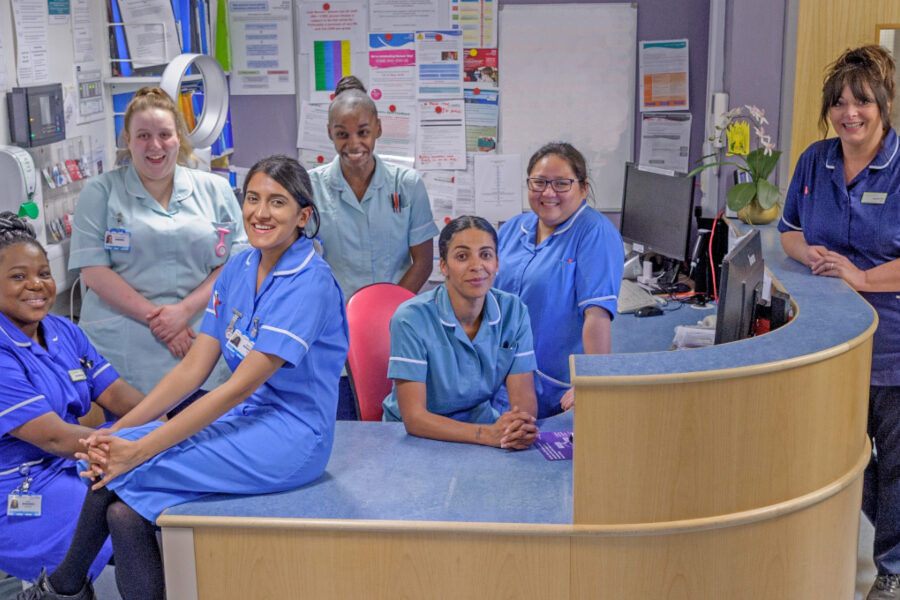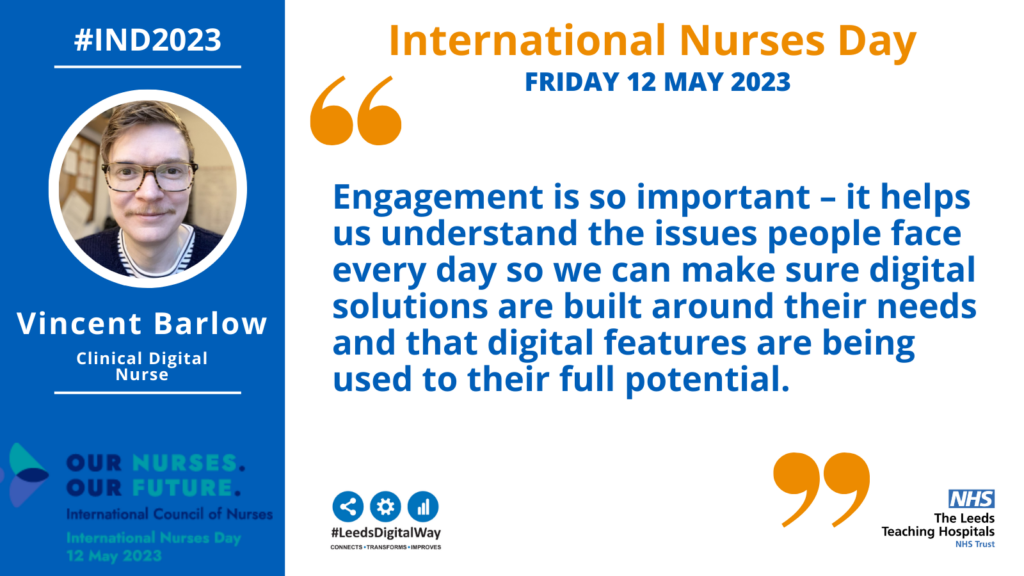
Vincent Barlow has over 15 years’ nursing experience and recently joined our Clinical Digital team, supporting digital transformation across the Trust. With the theme for International Nurses Day 2023 being ‘Our Nurses. Our Future’, Vincent provides his unique insight into the engagement work his team is doing and how this will help prepare patients, nurses, and NHS organisations for the future of digital healthcare.

Why is engagement so important?
It’s the first step of the process and helps us understand what people need. Engaging with colleagues on the frontline is the only way to really understand the issues they face every day so we can make sure all digital solutions are built around their needs and that digital features are being used to their full potential. It also makes sure that everyone is familiar with the Clinical Digital team and understand we’re here to support.
If people have issues with technology but don’t know how to report it, then they usually find ways to work around the problem which aren’t best practice and complicate the issue, causing further problems down the line. Since taking on this role, I’ve found that different teams are working individually to find digital solutions to problems that exist, and may even have already been solved, elsewhere. Bringing this knowledge and understanding together ensures we’re not investing in multiple solutions designed to address the same issue, and it also provides more resilient solutions in the long term. Digital projects are often complex and difficult to manage, and we’re here to support all clinical colleagues across the Trust.
Any stand out successes so far?
My proudest achievement so far is probably the paper picnic we held for colleagues in Children’s Outpatients. We asked everyone to provide a copy of every paper document they still use in their department so we could catalogue them, and we laid them all out to form a paper picnic blanket. This was a great success and allowed us to highlight any duplications, instances where digital alternatives were already available and begin to get an overview of what would be required for the department to go fully digital. This type of engagement is exactly the kind of groundwork which needs to be done so that the transition to full digitisation can be as seamless and beneficial as possible.
What’s planned next?
We need to have more presence on the wards and in clinical areas to better understand the needs of each department. We’ve just relaunched our digital advocates programme and we want to establish a set of digital competencies so that digital literacy can be taken as seriously as other skills.
Why is having a Trust-wide clinical digital team so important?
When implemented in the right way, technology makes peoples jobs easier. Large data is much easier to manage on a digital platform and digitisation can offer innovative solutions to longstanding issues. My role is a feedback mechanism ensuring teams across the Trust are getting proper support for their digital projects, and I’m here to lend a clinical eye to make sure digital solutions are fit for purpose. The greatest advantage of digital nursing and a centralised Clinical Digital team is that we have an oversight of the entire system. This allows us to connect teams together and makes sure we have a cohesive and holistic approach to digitisation.